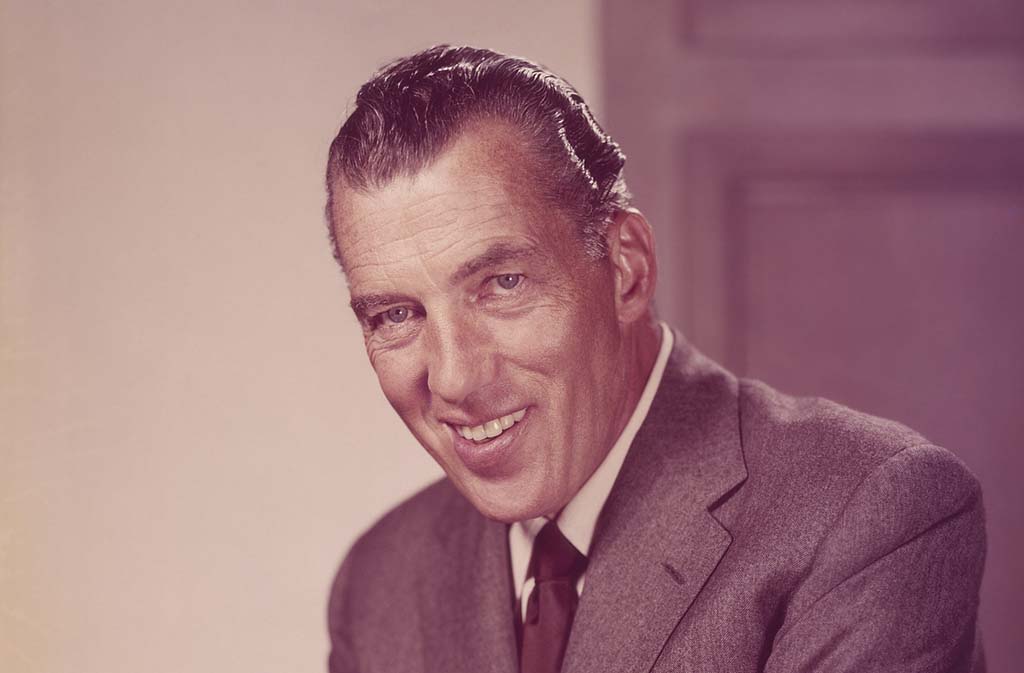The Lingering ‘Ed Sullivan Effect’ in the Presidential Race (B+C Guest Blog)
Harris-Trump battle highlights generational shifts in media and culture

The smarter way to stay on top of broadcasting and cable industry. Sign up below
You are now subscribed
Your newsletter sign-up was successful
Wall Street Journal opinion columnist Peggy Noonan, a former speechwriter for President Ronald Reagan, revealed in a recent piece a powerful media metaphor that may become an important factor in the race between former President Donald Trump and Vice President Kamala Harris. Yes, the fate of either candidate in their quest for the presidency may depend on the now-fading memories of a TV host named Ed Sullivan. He’s universally remembered, of course, for creating the enduring cultural tsunami of The Beatles performing live on his show for three straight weeks in the winter of 1964.
As Noonan observed, Trump “grew up, as did I, watching The Ed Sullivan Show. I’m sure it was on every Sunday night at 8 at the Trump house in Queens. On that show, you saw every week the great Borscht Belt comics of 1950-70. Their timing — ‘Take my wife — please!’ — is ingrained in him. What he does now is shtick, because he likes to entertain and is a performer.”
It’s hard to believe, but The Ed Sullivan Show on the CBS television network actually signed off in 1971 — over a half-century ago. By then, the show’s format and stars seemed like relics from the earlier days of vaudeville and burlesque.
The parade of comedians such as Henny Youngman, Myron Cohen, Alan King and Totie Fields made our parents and grandparents howl uncontrollably as we watched with them in our living rooms; it was true appointment TV for the entire family. By the time of Ed Sullivan’s poignant wave of the hand as the final episode’s credits rolled, however, a new breed of comics such as George Carlin and Richard Pryor clearly were emerging as favorites for a younger and hipper generation.
Sullivan also notably had as a show feature a recognition of celebrity guests in the audience, asking them to stand up so they could be recognized with a hearty round of applause. One can easily imagine a portly man in a blue suit and long red tie smiling and putting his thumbs up after the camera panned over after Ed Sullivan shouted his name. “Ladies and Gentlemen, let’s welcome noted New York businessman and man about town Donald Trump!”
In its time, The Ed Sullivan Show received consistent blockbuster ratings that far exceeded competing series hosted by the likes of Walt Disney and Steve Allen. It prospered for an incredible 23 seasons. But today, the last remaining vestige of Ed Sullivan is the nightly announcement that Stephen Colbert’s late-night show is being broadcast from a theater that CBS had named in Sullivan’s honor.
In contrast, the Harris campaign seems to have tapped into another zeitgeist entirely. Music outlets, with radio and streaming platforms such as Spotify and Pandora, are more important today in promoting stars who many younger and more diverse voters follow with the same sense of devotion that their elders had for those who appeared on The Ed Sullivan Show. As Megan Thee Stallion and Charli XCX begin to show up at Harris campaign rallies and on her social media posts, accompanied by a Beyoncé soundtrack, the stark difference between the personas of the two candidates and their followers now is in full view.
The smarter way to stay on top of broadcasting and cable industry. Sign up below
While Trump and Harris compete politically, the battle between intense media experiences then and now seems likely to play an unanticipated role in how many will turn out to vote on Election Day, and who they ultimately select as their candidate of choice. Alas, the ghost of Ed Sullivan may well be a looming presence when people cast their ballots for the 47th president of the United States.
Stuart N. Brotman is the former president and CEO of The Museum of Television and Radio in New York and Los Angeles (now the Paley Center for Media). He is the author of The First Amendment Lives On.

